-
Course Home PageCourse Home Page

-
Population and Community Health Homepage

DISCLAIMER: This content is designed to enhance the study of nursing. This content is generic and is not designed to take into account the specific objectives, needs, and/or circumstances of any particular region or country. To become a nurse, learners must successfully complete a program of study approved by the government or state-regulatory agency in their place of residence. We cannot guarantee that the successful completion of these materials will enable you to practice in your place of residence. Make sure that you are in compliance with the scope of practice of your regulatory body before attempting to put into use or practice any of the knowledge gained.Course Overview
Welcome to the Population and Community Health course. This course is designed to equip nursing students with the knowledge and skills necessary to understand and improve population and community health from a global perspective. Through exploring foundational concepts, current global health challenges, social determinants, and the role of epidemiology, students will be prepared to address diverse health needs in various community settings. This course is integral to nursing education, empowering students to advocate for health equity, engage in effective health promotion, and manage public health emergencies.
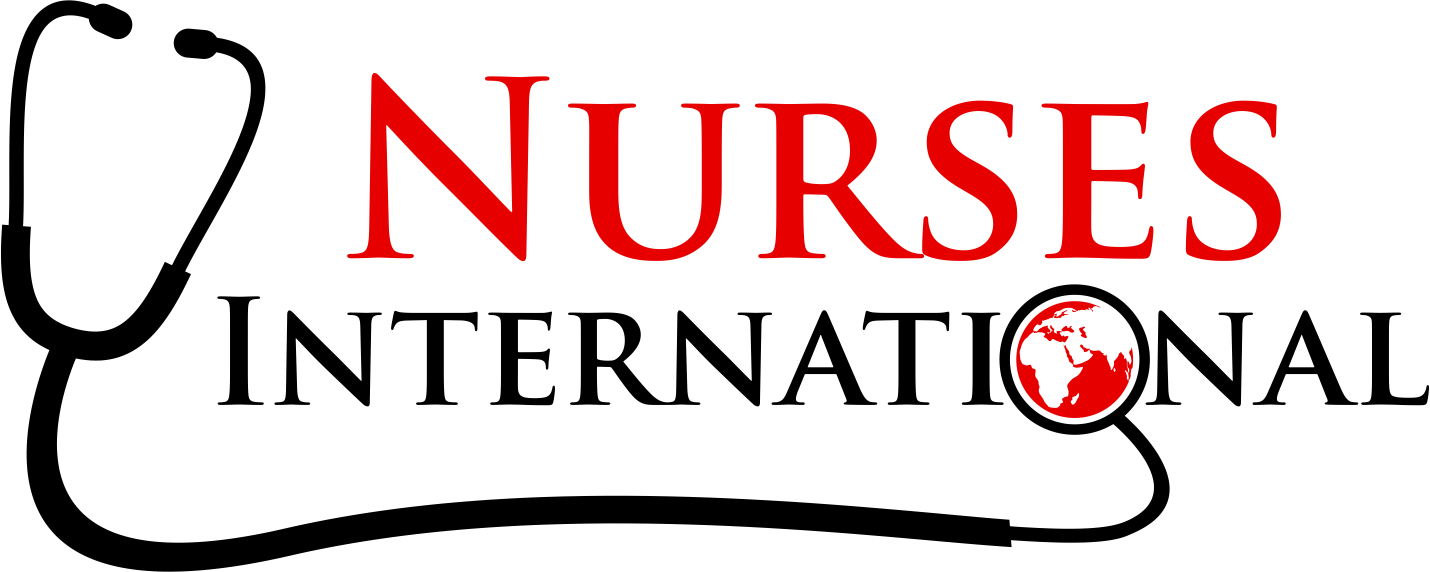
Course Development
The Population and Community Health course is a competency-based course developed in partnership with Nurses International (N.I.) and NextGenU.org (NGU). Competencies were developed in collaboration with leading experts in nursing education and practice. The course objectives are aligned with The Essentials: Core Competencies for Professional Nursing Education. It utilizes resources from accredited organizations such as the World Health Organization (WHO), the U.S. National Institutes of Mental Health (NIMH), universities, international guidelines, OpenStax.org, Pressbooks, and peer-reviewed open access peer reviewed nursing textbooks and journals. The Moodle Learning Management System (LMS) supports a flexible and interactive learning environment.
The course was written by the Nurses International faculty and designed in conjunction with the NextGenU.org design team.
The Nurses International core faculty writers and reviewers: Kathleen Capone, EdD, CNE, MS, RN; Stephanie Marfurt, PhD, RN; Beth Hutchason, RN, MN; Emily Parker, FNP-BC, MSN, RN; Monique Green, DHSc, MPH, MSN, FNP-C, RN; Kathryn Kollowa, EdD, MSN, RN; and Vanessa Teed, MSN, RN, CEN, CGNC.Course Structure
The course includes ten comprehensive units:
- Foundations of Population and Community Health
- Global Health Challenges and Trends
- Social Determinants of Health and Health Equity
- Epidemiology and Population Health Assessment
- Health Promotion and Disease Prevention Strategies
- Vulnerable Populations and Community Health
- Community Health Nursing Across Practice Settings
- Disaster Management and Public Health Emergencies
- Global Health Policy and Advocacy
- Future Directions in Population and Community Health Nursing
Each unit comprises:
- Individual lessons with accompanying reading materials
- PowerPoint presentations
- Learner self-assessment quizzes
- Critical thinking questions
- Flashcard learning material
- Case study activities
- Unit exams
Assessment
A grade of 80% is required on quizzes and unit exams. Submission of required activities for all case studies and reflection exercises is necessary to progress to the next lesson or section.
The estimated completion time is 83.15 hours.
A non-graded practice exam is provided at the end of the course material so that learners can use this to help them prepare for the final exam.
A comprehensive final exam consisting of 50 multiple-choice questions is administered at the end of the course.
A grade of 80% is required to pass the final exam. If not achieved, learners may self-remediate and attempt a second exam of comparable content.If unsuccessful on the second exam, the course must be retaken in full and passed to achieve a certificate of completion.
A certificate of completion is available for download upon successful course completion.
To obtain a certificate, learners must complete:
- All reading requirements
- All quizzes and unit exams with a passing grade of 80%
- All activities and case studies
- The final exam with a minimum of 80% (maximum 2 attempts)
- Self and course evaluation forms
Prerequisites
No prerequisites are required
Information for Institutions
NextGenU.org is happy to provide your institution with:
- A link to and a description of the course training
- Your grade on the final exam
- Your work products (e.g., case study activities) and any other shared materials you authorize
- Your evaluations -- course and self-assessments
- A copy of your certificate of completion
Obtaining a Degree
NextGenU.org co-sponsors degree programs with institutional partners. To obtain a full degree co-sponsored with NextGenU.org, registrants must be enrolled in a degree program as a student of a NextGenU.org institutional partner. If you think your institution might be interested in offering a degree with NextGenU.org, please feel free to contact us.
We hope that you will find this a rewarding learning experience, and we welcome your assessment and feedback.
For Nurse Educators
The course teacher resources include a study guide that includes a syllabus, recommended teaching strategies and a skills directory. Nurse educators may contact info@nursesinternational.org with queries/permission to access faculty resources for this course.
Technical Support
For any technical difficulties or course access questions please contact support@nextgenu.org for assistance.
Disclaimer
This content is designed to enhance your study; we cannot guarantee that the successful completion of these materials will enable you to work in your place of residence as regulations vary by location. If you plan to practice using your new knowledge, to ensure safety and compliance with your local laws, you must complete a program of study approved by the government and relevant local regulatory agencies in your place of practice.
NextGenU.org does not directly confer academic degrees or guarantee that learning institutions will accept NextGenU.org coursework for credit.
-
Unit 1: Foundations of Population and Community Health
Unit Learning Outcomes:
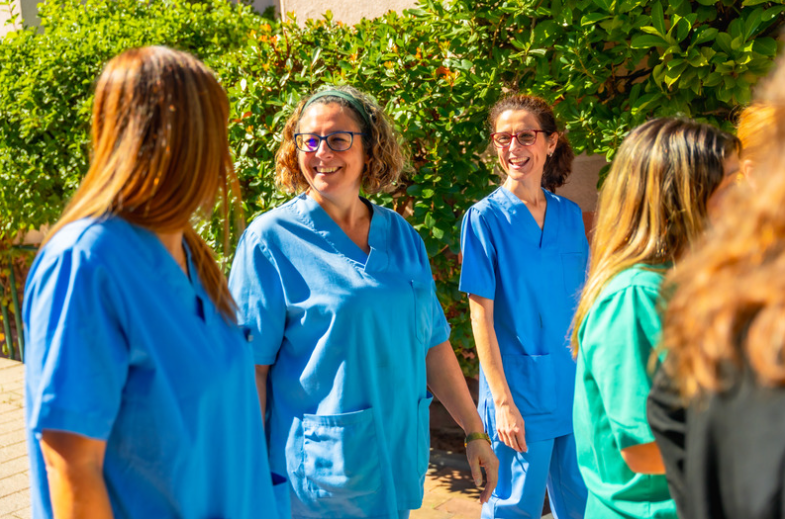
- Understand core concepts and principles of population and community health nursing from a global perspective
- Analyze the role of nurses in managing population health and public/community health practices
- Explore historical and modern trends in population health and their implications for nursing practices
-
Unit 1: Lesson 1: Introduction to Population Health
Student Learning Outcomes:
Upon completion of this lesson, you will be able to:- Define population health
- Explain the importance of population health in nursing practice
- Outline the global trends in population health
- Define the role of nurses in population health management
Approximate time required for the readings for this lesson (at 144 words/minute): 1 hour and 55 minutes.
3 URLs -
Unit 1: Lesson 2: Foundations of Public/Community Health
Student Learning Outcomes:
Upon completion of this lesson, you will be able to:- Explain the historical development of public health globally
- Identify the core functions of public health
- Outline the essential services of public health
- Explain the importance of public/community health in nursing practice
Approximate time required for the readings for this lesson (at 144 words/minute): 1 hour and 55 minutes.
3 URLs -
Unit 1: Lesson 3: Population-Based Nursing Practice
Student Learning Outcomes:
Upon completion of this lesson, you will be able to:- Define population-based nursing practice
- Explain the scope of practice for public health nurses
- Identify the core competencies for public health nurses
- Discuss the application of the nursing process in community health settings
Approximate time required for the readings for this lesson (at 144 words/minute): 2 hours.
3 URLs -
Unit 2: Global Health Challenges and Trends
Unit Learning Outcomes:
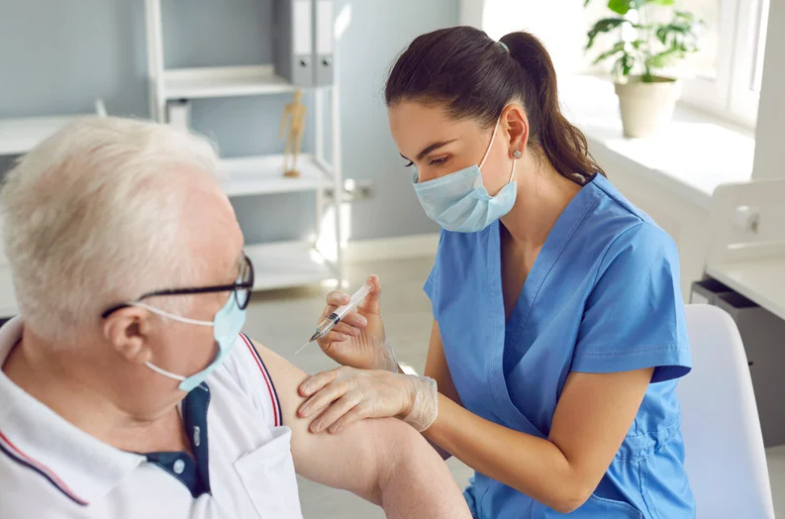
- Analyze current global health issues and their impact on population health outcomes
- Evaluate demographic trends and societal changes influencing global healthcare delivery
- Assess strategies for managing pandemics and infectious disease outbreaks on a global scale
-
Unit 2: Lesson 1: Global Health Statistics and Trends
Student Learning Outcomes:
Upon completion of this lesson, you will be able to:- Identify key global health indicators and their significance
- Compare health statistics across different regions and countries
- Define the concept of global public health security
Approximate time required for the readings for this lesson (at 144 words/minute): 2 hours and 37 minutes.
3 URLs -
Unit 2: Lesson 2: Demographic Trends and Societal Changes
Student Learning Outcomes:
Upon completion of this lesson, you will be able to:- Identify global demographic shifts and their impact on health
- Explain the influence of technology on healthcare delivery
- Outline the challenges and opportunities in the global healthcare workforce
Approximate time required for the readings for this lesson (at 144 words/minute): 1 hour and 36 minutes.
3 URLs -
Unit 2: Lesson 3: Pandemics and Infectious Disease Outbreaks
Student Learning Outcomes:
Upon completion of this lesson, you will be able to:- Identify historical and recent global pandemics
- Outline strategies for infectious disease prevention and control
- Identify the role of the nurse in pandemic preparedness and response
Approximate time required for the readings for this lesson (at 144 words/minute): 4 hours and 30 minutes.
3 URLs -
Unit 3: Social Determinants of Health and Health Equity
Unit Learning Outcomes:
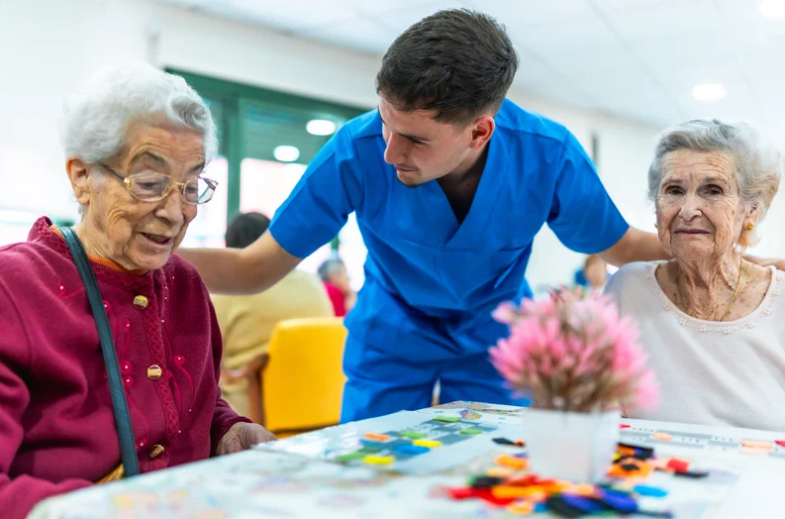
- Evaluate the impact of social determinants on health outcomes across diverse populations
- Analyze health disparities and identify strategies to promote health equity globally
- Examine cultural influences on health beliefs and practices and their implications for nursing care
-
Unit 3: Lesson 1: Social Determinants of Health
Student Learning Outcomes:
Upon completion of this lesson, you will be able to:- Define social determinants of health
- Identify the categories of social determinants of health
- Explain the impact of social determinants on population health outcomes
- Identify global variations in social determinants of health
Approximate time required for the readings for this lesson (at 144 words/minute): 1 hour and 37 minutes.
3 URLs -
Unit 3: Lesson 2: Health Disparities and Health Equity
Student Learning Outcomes:
Upon completion of this lesson, you will be able to:- Explain health disparities across different populations globally
- Identify the root causes of health inequities
- Identify strategies to promote health equity in diverse settings
Approximate time required for the readings for this lesson (at 144 words/minute): 2 hours.
3 URLs -
Unit 3: Lesson 3: Cultural Influences on Health
Student Learning Outcomes:
Upon completion of this lesson, you will be able to:- Identify cultural factors affecting health beliefs and practices
- Outline the principles of culturally competent nursing care
- Explain strategies for providing culturally responsive health services
- Examine the use of Purnell’s Model in a case study related to Population Health
Approximate time required for the readings for this lesson (at 144 words/minute): 2 hours and 10 minutes.
3 URLs -
Unit 4 Epidemiology and Population Health Assessment
Unit Learning Outcomes:

- Assess community health needs using epidemiological concepts and methods
- Apply evidence-based practices for planning and implementing community health interventions
- Examine the nurse's role in conducting community health assessments and diagnoses
-
Unit 4: Lesson 1: Principles of Epidemiology
Student Learning Outcomes:
Upon completion of this lesson, you will be able to:- Define epidemiology
- Explain the importance of epidemiology in population health
- Identify types of epidemiological studies and their applications
- Explain the use of epidemiological data in nursing practice
Approximate time required for the readings for this lesson (at 144 words/minute): 8 hours and 50 minutes.
3 URLs -
Unit 4: Lesson 2: Community Health Assessment
Student Learning Outcomes:
Upon completion of this lesson, you will be able to:- Identify methods and tools used in community health assessment
- Explain the process of identifying community health priorities
- Identify the nurse's role in community health diagnosis
Approximate time required for the readings for this lesson (at 144 words/minute): 10 hours and 22 minutes.
3 URLs -
Unit 4: Lesson 3: Evidence-Based Decision Making in Population Health
Student Learning Outcomes:
Upon completion of this lesson, you will be able to:- Explain the importance of evidence-based practice in community health
- Identify sources of evidence for population health interventions
- Outline strategies for evaluating the quality of evidence
Approximate time required for the readings for this lesson (at 144 words/minute): 5 hours and 57 minutes.
3 URLs -
Unit 5 Health Promotion and Disease Prevention Strategies
Unit Learning Outcomes:

- Examine evidence-based strategies for health promotion and disease prevention in diverse communities
- Analyze the impact of environmental factors on population health and nurse involvement
- Evaluate global initiatives aimed at disease prevention and promotion of public health
-
Unit 5: Lesson 1: Health Promotion and Disease Prevention
Student Learning Outcomes:
Upon completion of this lesson, you will be able to:- Define health promotion and its theoretical frameworks
- Identify global strategies for health promotion
- Identify the nurse's role in health promotion activities
- Outline the levels of disease prevention
- Identify disease prevention strategies for different age groups
- Outline global initiatives for disease prevention
Approximate time required for the readings for this lesson (at 144 words/minute): 1 hour and 59 minutes.
3 URLs -
Unit 5: Lesson 2: Environmental Health and Population Health
Student Learning Outcomes:
Upon completion of this lesson, you will be able to:- Explain the impact of environmental factors on population health
- Identify global environmental health challenges
- Identify the nurse's role in promoting environmental health
Approximate time required for the readings for this lesson (at 144 words/minute): 1 hour and 39 minutes.
3 URLs -
Unit 6 Vulnerable Populations and Community Health
Unit Learning Outcomes:
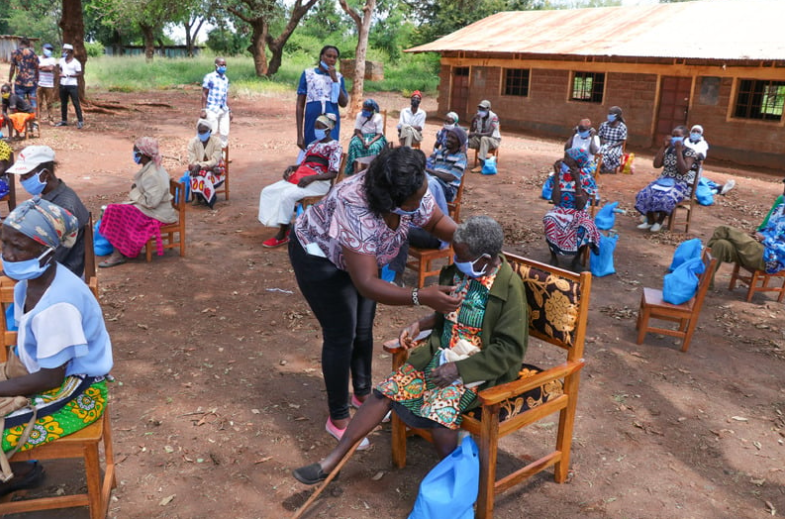
- Analyze the health needs of vulnerable populations
- Evaluate the impact of global migration on health
- Examine the nurse's role in caring for migrant and refugee populations
- Identify successful case studies and interventions for improving outcomes in vulnerable groups
-
Unit 6: Lesson 1: Identifying and Addressing the Needs of Vulnerable Populations
Student Learning Outcomes:
Upon completion of this lesson, you will be able to:- Define vulnerability in the context of population health
- Identify global examples of vulnerable populations
- Identify factors contributing to health vulnerability
- Outline strategies for improving health outcomes in vulnerable populations
- Identify case studies of successful interventions globally
- Identify the nurse's role in advocating for vulnerable groups
Approximate time required for the readings for this lesson (at 144 words/minute): 2 hours and 35 minutes.
3 URLs -
Unit 6: Lesson 2: Global Migration and Refugee Health
Student Learning Outcomes:
Upon completion of this lesson, you will be able to:- Explain the health challenges faced by migrant and refugee populations
- Identify international policies and programs addressing migrant health
- Identify the nurse's role in providing care to migrant and refugee communities
Approximate time required for the readings for this lesson (at 144 words/minute): 2 hours and 14 minutes.
3 URLs -
Unit 7 Community Health Nursing Across Practice Settings
Unit Learning Outcomes:
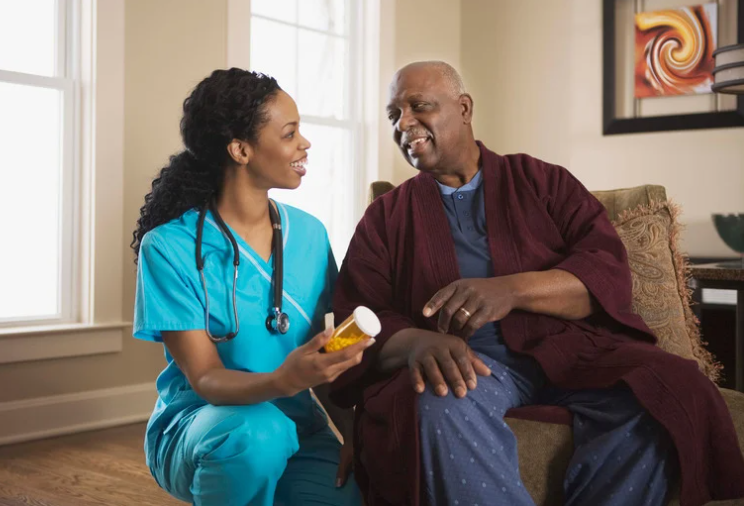
- Examine the role of community health nurses in various global practice settings
- Identify challenges and opportunities in providing nursing care across different community environments
- Evaluate the skills and competencies required for effective community-based and home health nursing
-
Unit 7: Lesson 1: Community-Based Nursing Practice
Student Learning Outcomes:
Upon completion of this lesson, you will be able to:- Identify different models of community-based nursing practice
- Identify the role of nurses in primary health care globally
- Explain challenges and opportunities in community-based nursing
Approximate time required for the readings for this lesson (at 144 words/minute): 1 hour and 52 minutes.
3 URLs -
Unit 7: Lesson 2: School Health Nursing
Student Learning Outcomes:
Upon completion of this lesson, you will be able to:- Identify the role of nurses in school health programs globally
- Outline strategies for promoting health in educational settings
- Outline global initiatives in school health
Approximate time required for the readings for this lesson (at 144 words/minute): 2 hours and 7 minutes.
3 URLs -
Unit 7: Lesson 3: Occupational Health Nursing
Student Learning Outcomes:
Upon completion of this lesson, you will be able to:- Identify the role of nurses in occupational health settings
- Explain global occupational health challenges and interventions
- Identify the nurse's role in promoting workplace health and safety
Approximate time required for the readings for this lesson (at 144 words/minute): 1 hour and 58 minutes.
3 URLs -
Unit 7: Lesson 4: Community Nursing and Home-Based Care
Student Learning Outcomes:
Upon completion of this lesson, you will be able to:- Define the role of community nurses in providing home-based care in various global contexts
- Identify the skills required for effective home-based nursing care
- Compare and contrast home care needs in Western healthcare systems and resource-limited settings
- Explain the process of developing individualized care plans for complex clients with multiple comorbidities in home settings
- Identify evidence-based practices for medication management, wound care, and other clinical skills adaptable to diverse home environments
- Outline the challenges and opportunities in managing complex clients with multiple comorbidities in home settings
Approximate time required for the readings for this lesson (at 144 words/minute): 4 hours and 30 minutes.
3 URLs -
Unit 8 Disaster Management and Public Health Emergencies
Unit Learning Outcomes:
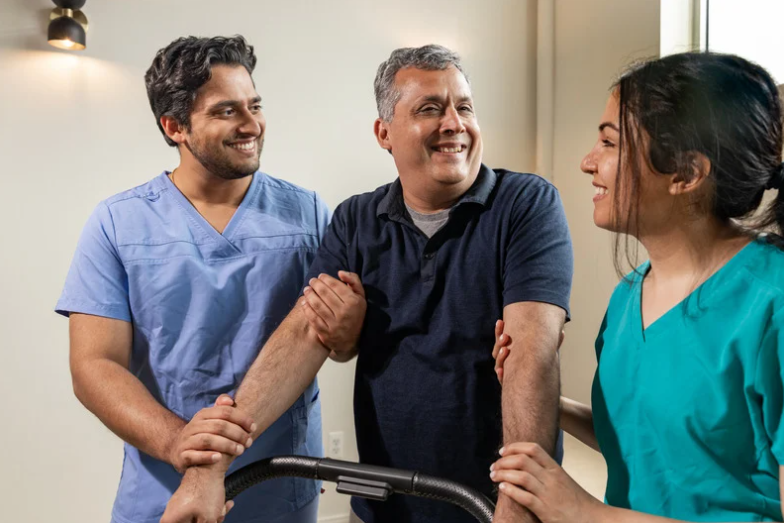
- Understand the nurse's role in disaster preparedness, response, and recovery from a global perspective
- Analyze the impact of disasters on population health and the disaster management cycle
- Evaluate strategies and frameworks for disaster risk reduction and public health emergency preparedness
-
Unit 8: Lesson 1: Principles of Disaster Management
Student Learning Outcomes:
Upon completion of this lesson, you will be able to:- Identify the various types of disasters
- Explain the impact of disasters on population health
- Explain the disaster management cycle
- Identify global frameworks for disaster risk reduction
Approximate time required for the readings for this lesson (at 144 words/minute): 2 hours and 12 minutes.
3 URLs -
Unit 8: Lesson 2: The Nurse's Role in Disaster Response
Student Learning Outcomes:
Upon completion of this lesson, you will be able to:- Identify the nurse's responsibilities in different phases of disaster management
- Explain the nurse's involvement in global disaster responses
- Identify ethical considerations in disaster nursing
Approximate time required for the readings for this lesson (at 144 words/minute): 1 hour and 13 minutes.
3 URLs -
Unit 8: Lesson 3: Public Health Emergency Preparedness
Student Learning Outcomes:
Upon completion of this lesson, you will be able to:- Identify strategies for public health emergency preparedness
- Outline global health security initiatives
- Identify the nurse's role in building community resilience
Approximate time required for the readings for this lesson (at 144 words/minute): 2 hours and 2 minutes.
3 URLs -
Unit 9 Global Health Policy and Advocacy
Unit Learning Outcomes:

- Explore the nurse's role in public health policy development and advocacy for population health
- Analyze the impact of global health policies on population health and nursing practice
- Evaluate cases of successful nursing advocacy and coalition-building for health policy initiatives
-
Unit 9: Lesson 1: Understanding Health Policy
Student Learning Outcomes:
Upon completion of this lesson, you will be able to:- Define the policy development process
- Explain the impact of global health policies on population health
- Identify the importance of nurse involvement in health policy
Approximate time required for the readings for this lesson (at 144 words/minute): 1 hour and 56 minutes.
3 URLs -
Unit 9: Lesson 2: Advocacy in Population Health
Student Learning Outcomes:
Upon completion of this lesson, you will be able to:- Define strategies for effective health advocacy
- Identify cases of successful nursing advocacy globally
- Identify the nurse's role in building coalitions for health
Approximate time required for the readings for this lesson (at 144 words/minute): 2 hours and 55 minutes.
3 URLs -
Unit 9: Lesson 3: Global Health Governance
Student Learning Outcomes:
Upon completion of this lesson, you will be able to:- Identify the role of international organizations in global health
- Explain global health initiatives and their impact
- Identify the role of the nurse in global health governance
Approximate time required for the readings for this lesson (at 144 words/minute): 2 hours and 10 minutes.
3 URLs -
Unit 10 Future Directions in Population and Community Health Nursing
Unit Learning Outcomes:

- Analyze emerging trends and challenges in population and community health nursing
- Evaluate the implications of technological innovations and climate change on population health
- Explore strategies for building sustainable and healthy communities globally
-
Unit 10: Lesson 1: Technological Innovations in Population Health
Student Learning Outcomes:
Upon completion of this lesson, you will be able to:- Explain the impact of digital health technologies on population health
- Outline global trends in health informatics and data use
- Explain the implications of technology for community health nursing practice
Approximate time required for the readings for this lesson (at 144 words/minute): 2 hours and 7 minutes.
3 URLs -
Unit 10: Lesson 2: Climate Change and Global Health
Student Learning Outcomes:
Upon completion of this lesson, you will be able to:- Explain the health impacts of climate change on populations
- Identify global initiatives addressing climate change and health
- Identify the nurse's role in climate change mitigation and adaptation
Approximate time required for the readings for this lesson (at 144 words/minute): 2 hours and 1 minute.
3 URLs -
Unit 10: Lesson 3: Building Sustainable and Healthy Communities
Student Learning Outcomes:
Upon completion of this lesson, you will be able to:- Define the concept of sustainable development in relation to health
- Identify global initiatives for creating healthy cities and communities
- Identify the nurse's role in promoting sustainable and healthy environments
Approximate time required for the readings for this lesson (at 144 words/minute): 2 hours and 10 minutes.
3 URLs -
Course and Self Evaluation & Certificate
 In this section, you can provide feedback about this course to help us make NextGenU.org better. Once evaluations are completed, you will be able to download your certificate of completion.
In this section, you can provide feedback about this course to help us make NextGenU.org better. Once evaluations are completed, you will be able to download your certificate of completion.

